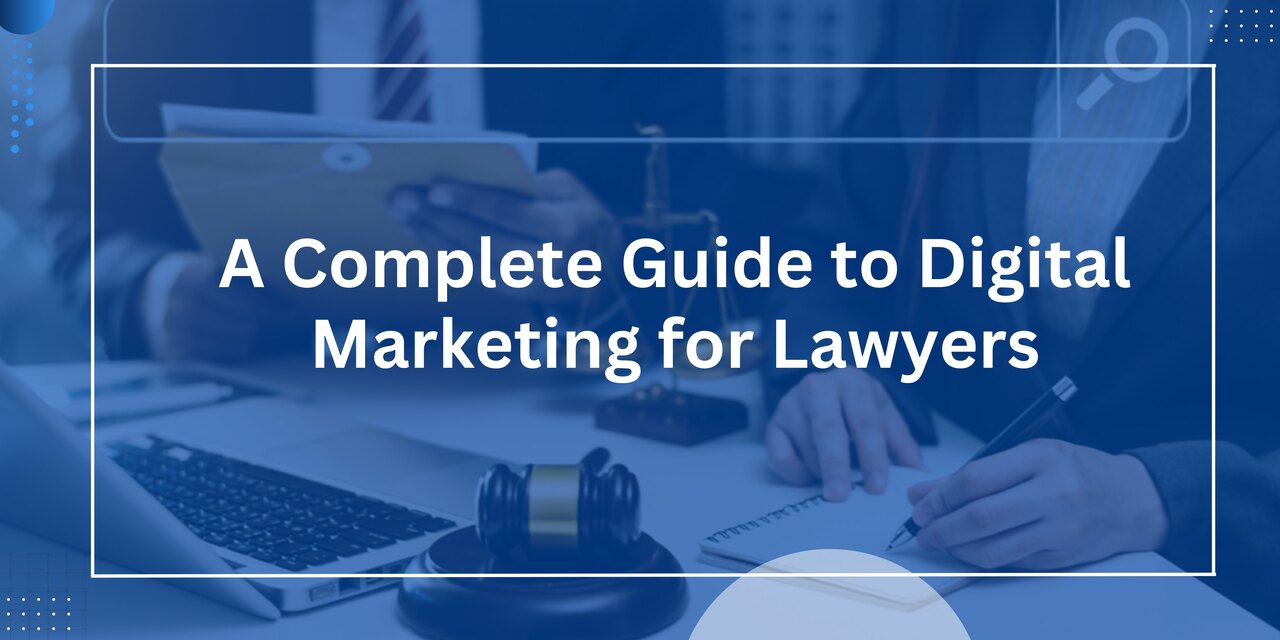In today’s competitive legal landscape, having a strong online presence is crucial for law firms to attract new clients and grow their practice. Search Engine Optimization (SEO) is the key to achieving this. By optimizing your website, creating valuable content, and implementing effective strategies, your law firm can rank higher on search engine results pages (SERPs) and connect with potential clients actively searching for legal services. SEO for lawyers ensures your firm is visible where it matters most.
This guide will cover everything you need to know about SEO for law firms and legal practices, including essential strategies, best practices, and actionable tips. With proven insights from RSXigital, a trusted partner in digital marketing, you’ll learn how to take your law firm’s online presence to the next level.
What Is SEO for Law Firms?
SEO for law firms is the process of optimizing your legal website to improve its visibility in search engines like Google. By targeting specific keywords, enhancing the user experience, and building your online authority, SEO helps potential clients find your services when they search for legal assistance.
Why Is SEO Important for Legal Firms?
- Increase Visibility: Higher rankings mean more exposure to potential clients.
- Generate Leads: SEO drives organic traffic, bringing in quality leads actively seeking legal help.
- Build Trust: Appearing at the top of search results establishes credibility and authority.
- Cost-Effective: Unlike paid ads, SEO provides long-term results without ongoing ad spend.
With RSXigital, your law firm gains access to a proven methodology that ensures visibility and sustainable growth in the digital space.
Key SEO Strategies for Law Firms
1. Keyword Research for Lawyers
Identifying the right keywords is the foundation of a successful SEO for lawyers strategy. Focus on:
- Informational Keywords: “What does a divorce lawyer do?”
- Transactional Keywords: “Hire a personal injury lawyer near me.”
- Commercial Keywords: “Best criminal defense attorney in [city].”
Tools for Keyword Research
- Google Keyword Planner: Ideal for finding search volume and keyword suggestions.
- SEMrush: Comprehensive keyword and competitive analysis.
- Ahrefs: Excellent for discovering keyword difficulty and backlink opportunities.
- Answer the Public: Useful for uncovering user questions and topics.
Long-Tail Keywords
Target specific long-tail keywords such as “How much does a DUI lawyer cost in California?” These terms have lower competition and attract highly motivated clients.
RSXigital specializes in advanced keyword research techniques to ensure your firm ranks for the most relevant and valuable terms.
2. Optimize Your Website
Your website is your digital storefront. Ensure it is user-friendly, fast, and optimized for search engines.
On-Page SEO Tips
- Meta Titles & Descriptions: Include target keywords and a clear call-to-action (e.g., “Contact the top DUI attorney in [city] today!”).
- Header Tags: Structure content with clear H1, H2, and H3 tags.
- Image Optimization: Use descriptive file names and add alt text.
- Internal Linking: Connect related pages to improve navigation and SEO.
Technical SEO Checklist
- Mobile-Friendly Design: Ensure your site is responsive and optimized for mobile devices.
- Page Speed: Compress images, leverage browser caching, and use a reliable hosting provider.
- Secure Website: Switch to HTTPS for better security and SEO rankings.
- Schema Markup: Add structured data for rich snippets like reviews, FAQs, and contact details.
- Fix Crawl Errors: Use tools like Google Search Console to identify and resolve issues.
RSXigital offers website audits and technical SEO enhancements to ensure your site meets all these criteria.
3. Local SEO for Legal Firms
Most clients search for lawyers in their local area. Implement these strategies to boost your local visibility:
Key Components of Local SEO
- Google Business Profile (GBP): Optimize your GBP listing with accurate business details, photos, and regular updates.
- Local Keywords: Target terms like “Best personal injury lawyer in [city].”
- NAP Consistency: Ensure your Name, Address, and Phone number are consistent across all directories and platforms.
- Online Reviews: Encourage satisfied clients to leave reviews on Google and other platforms.
- Local Directories: List your firm on platforms like Avvo, Justia, FindLaw, and Yelp.
Geotargeting Strategies
- Create city-specific landing pages (e.g., “[City] Divorce Lawyer”).
- Embed Google Maps on your contact page to signal your location.
- Use geotags in your image metadata.
RSXigital helps law firms implement advanced local SEO strategies, ensuring you dominate your local market.
4. Content Marketing for Law Firms
Content marketing is a powerful tool for legal SEO for lawyers. By addressing common client questions, you can position your firm as an authority.
Types of Content to Publish
- Legal Guides: Comprehensive overviews of legal processes (e.g., “How to file a personal injury claim in [state]”).
- Blog Posts: Answer frequently asked questions (e.g., “Do I need a lawyer for a car accident?”).
- FAQs: Address common concerns in your area of practice.
- Case Studies: Share real-life examples of successful cases to build trust.
- Explainer Videos: Visual content that simplifies complex legal topics.
- White Papers: Provide in-depth analysis of legal trends and issues.
Evergreen vs. Topical Content
- Evergreen Content: Topics like “How to Choose a Lawyer” remain relevant over time.
- Topical Content: Address trending issues, such as changes in local laws or high-profile cases.
RSXigital provides a full suite of content marketing services tailored to the unique needs of law firms.
5. Building Backlinks for Authority
Backlinks from reputable websites signal to search engines that your site is trustworthy.
Effective Ways to Earn Backlinks
- Guest Blogging: Write articles for industry-relevant websites.
- Partnerships: Collaborate with local businesses or organizations.
- Press Releases: Share newsworthy achievements like awards or case victories.
- Social Media: Share your content to encourage shares and external links.
- Testimonials: Offer testimonials to trusted businesses in exchange for a backlink.
Avoiding Toxic Backlinks
- Use tools like Ahrefs or SEMrush to audit your backlink profile.
- Disavow links from spammy or low-quality domains.
RSXigital specializes in ethical link-building strategies that enhance your site’s authority and rankings.
6. Tracking and Measuring SEO Performance
Regularly monitor your SEO performance to ensure your efforts are yielding results.
Metrics to Track
- Organic Traffic: Track the number of visitors from search engines.
- Keyword Rankings: Monitor how your target keywords perform.
- Conversion Rates: Measure how many visitors take action (e.g., contact forms).
- Bounce Rate: Keep visitors engaged by improving content and navigation.
- Domain Authority: Check your website’s overall SEO health.
Recommended Tools
- Google Analytics: Monitor traffic, behavior, and conversions.
- Google Search Console: Identify crawl errors and keyword rankings.
- Moz Pro: Analyze your site’s SEO performance.
- Ahrefs: Track backlinks and competitor strategies.
- Hotjar: Analyze user behavior on your site.
RSXigital provides comprehensive SEO reporting and analytics to keep your firm informed and competitive.
Emerging Trends in Legal SEO
1. Voice Search Optimization
With the rise of virtual assistants like Siri and Alexa, optimize your content for voice search. Use conversational keywords such as “What is the best law firm near me?”
2. Video Marketing
Video content is highly engaging and ranks well on Google. Create informative videos about legal topics and optimize them with keywords and transcripts.
3. User Experience (UX)
Google prioritizes websites with excellent UX. Focus on intuitive navigation, fast load times, and a clean design.
4. Artificial Intelligence (AI) and Automation
Use AI tools to analyze data, improve keyword targeting, and automate repetitive tasks like content scheduling.
Common SEO Mistakes to Avoid
- Ignoring Mobile Optimization: Most users search on mobile devices.
- Overlooking Local SEO: Local search is critical for law firms.
- Keyword Stuffing: Focus on user-friendly content rather than overloading keywords.
- Duplicate Content: Avoid copying content from other sources.
- Neglecting Analytics: Regularly review data to refine your strategy.
- Poor UX: A cluttered or slow website drives users away.
Conclusion
SEO is an essential component of a successful digital marketing strategy for law firms. By implementing the strategies outlined in this guide, with expert insights from RSXigital, your firm can increase visibility, attract qualified leads, and establish itself as a trusted authority in the legal industry. RSXigital provides the tools, expertise, and support to help your firm achieve sustainable growth.
Start optimizing your website today and let RSXigital guide you every step of the way. Watch your online presence grow and your client base expand!



